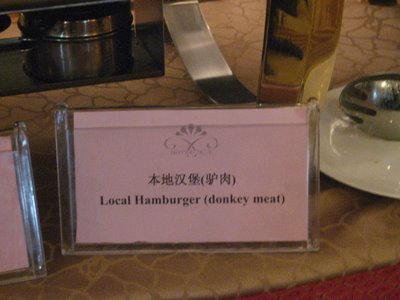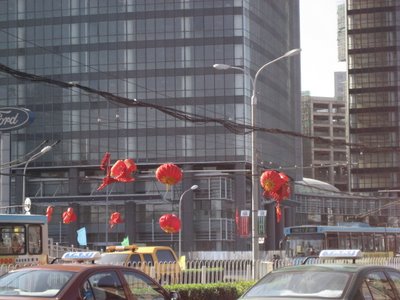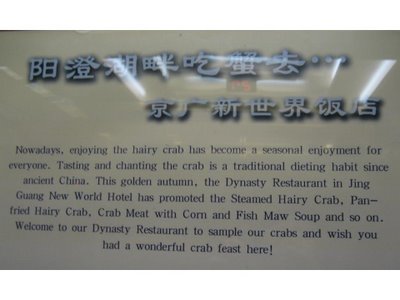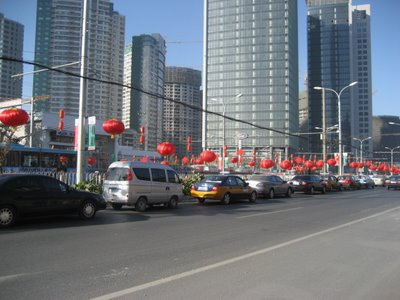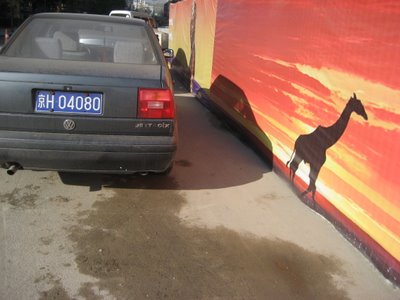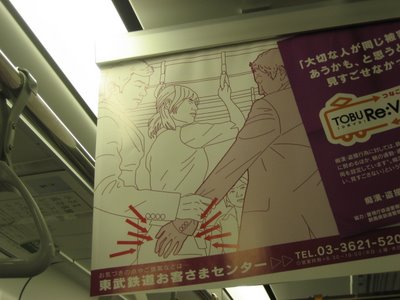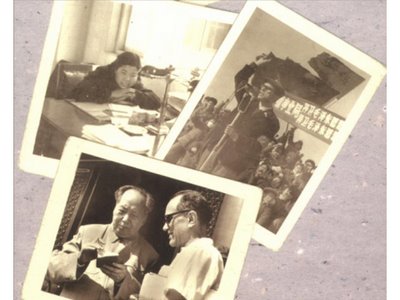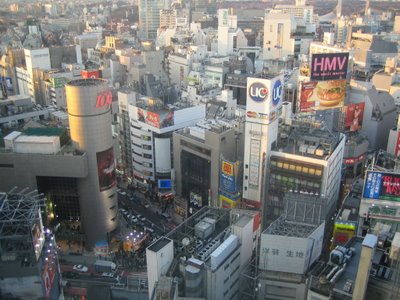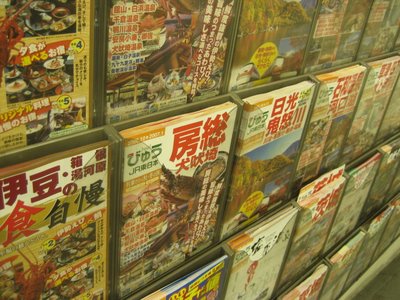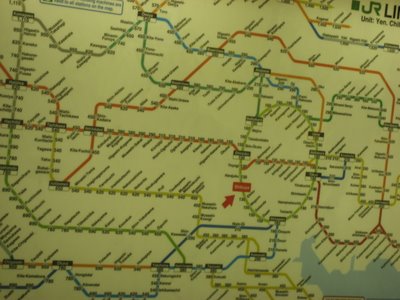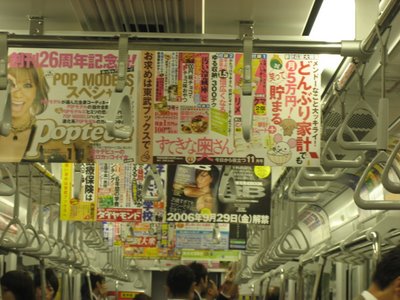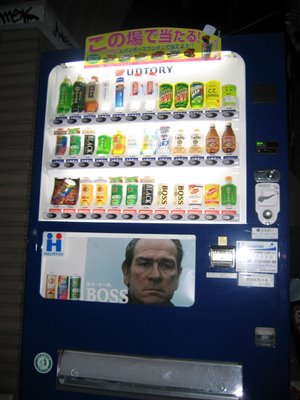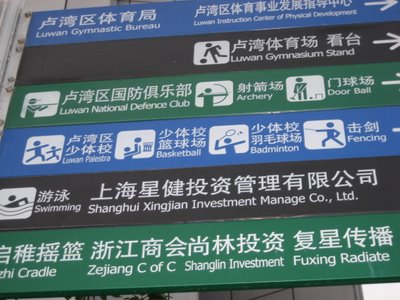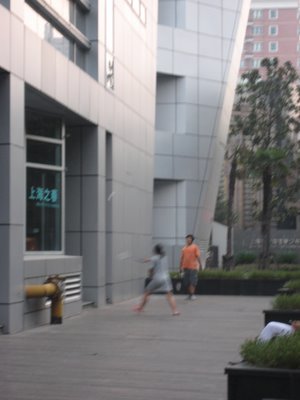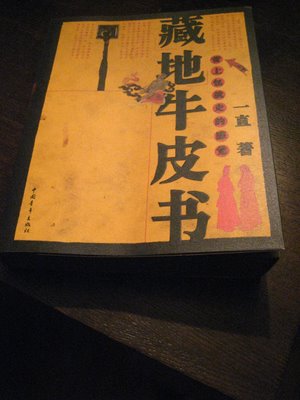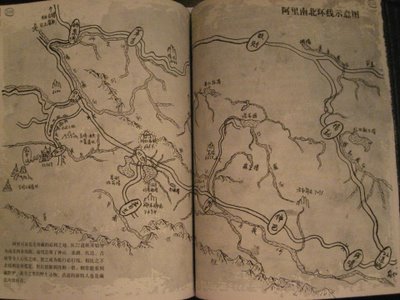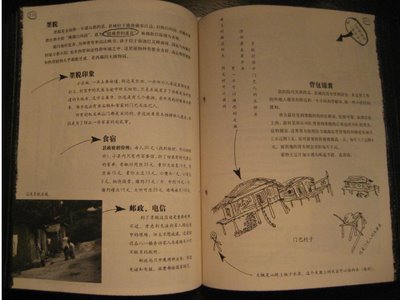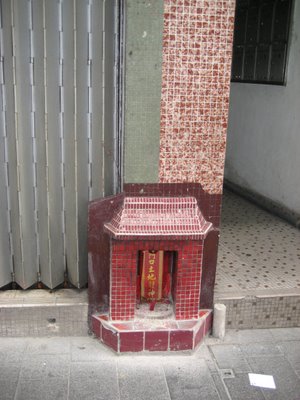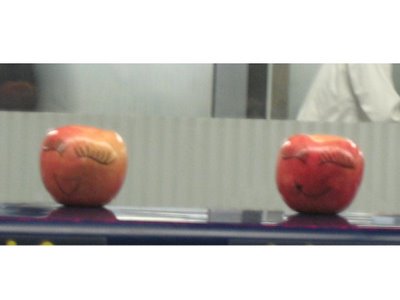Was up in Hohhot, Inner Mongolia recently. While I was there I popped into one of the city's malls and saw some interesting fashion ad casting.
First off, the choice of brand spokesmen for the men's wear brands:

I would guess that these are local heroes (not at all implying that its not their dashing good looks getting them these gigs, of course).
Either way, an interesting take on the masculine ideal:
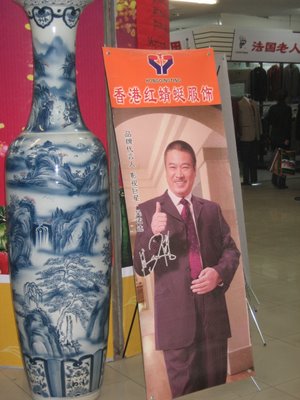
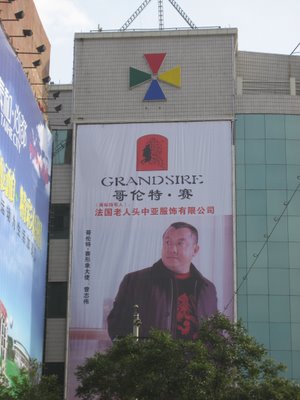
Also Grandsire - what a great name eh?
On the other extreme, the female mannequins were all uber-Aryan types. Row after row of them in fact, all standing outside the shops in the mall, like something out of Doctor Who:
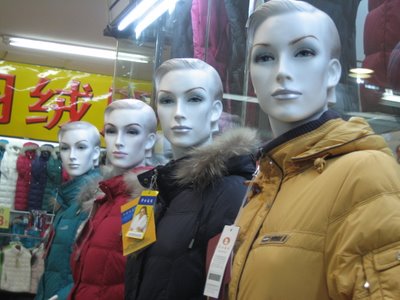
I'm sure that China, as with most things, is the world's biggest producer of shop mannequins but I have yet to see one Asian or even Asianish style shop dummy. I'm sure this isn't a source of fierce racial debate in China but it must be re-enforcing the link between the west and fashion on some level...
Which leads me to Exhibit C.
First off, a classic copy-cat brand strategy, the sound alike:
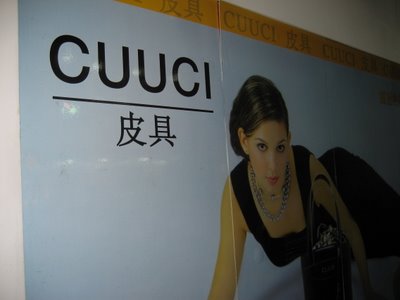
How many Inner Mongolians recognise the difference between Gucci and Cuuci on a linguistic or product basis? But hey, its a Western model, must be kosher right?










